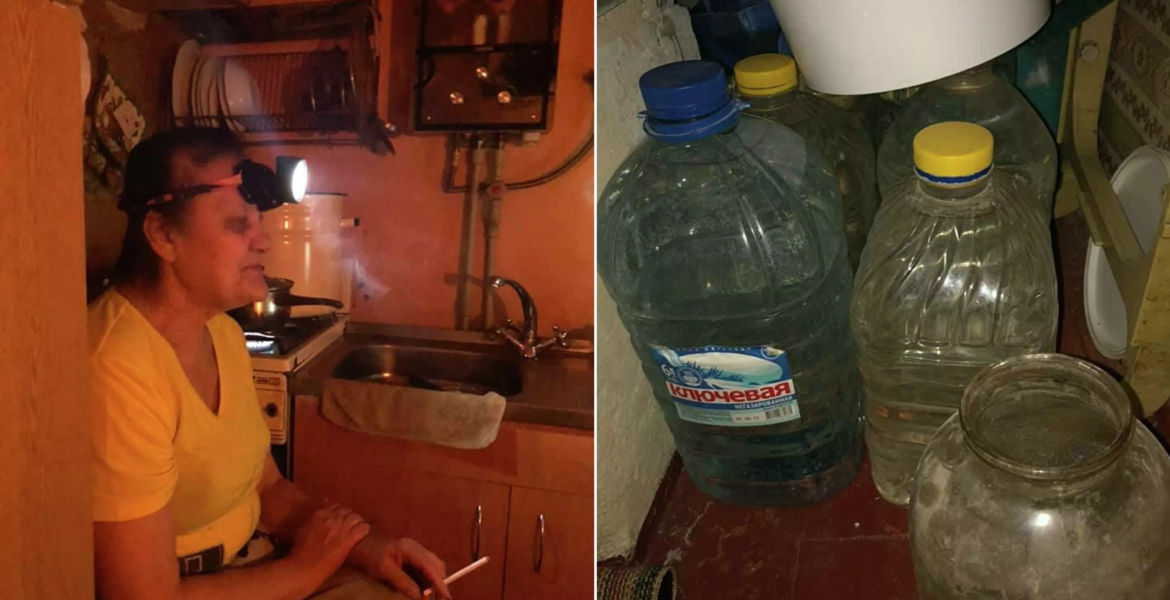Thousands of people in the Donetsk and Luhansk People's Republics, including over 100,000 Greeks, are living in the flames of a war that has never stopped since 2014, but what is really happening in Donbass?
Several years ago, Donbass, the wider region made up of Donetsk and Lugansk with its countless coal mines and metallurgical industries, had a special character of a developing region, with a patchwork of peoples inhabiting its territories.
Peace prevailed in the region since the collapse of the USSR, but the landscape has changed over the past eight years during the conflict.
Thousands of civilians were killed in bombings and armed attacks, and tens of thousands fled the country.
After 2014, children were born in Donbass who have not lived in peaceful conditions, which we all have as modern states.
The war stories of the region were told by Elena Kalinina, a businessman who lives in Greece, specifically in Volos, but is originally from the Lugansk Region.
In particular, she was born and raised in Alchevsk, which, although one of the largest industrial centres in Donbass, has in recent years been hit by the fury of Ukrainian neo-Nazis.
In constant contact with her family, her friends, as much as possible from the damaged communications, she receives only one answer: "We will not leave our homes."
"The bombing has not stopped for a moment since 2014, but it has gotten worse lately," she said.
"The Ukrainians have been equipped with more powerful weapons over the years and use banned weapons systems.
"They are constantly violating the Minsk agreement.
"They use Soviet missiles on the border, capable of destroying an entire city."
What is less well known, she recalls, is that about eight years ago, at a rate of 96%, the population voted in favour of independence from Ukraine, something that Russia recognised a few days ago.
"The move for independence was not accidental or without reason," she said, adding: "Until a few years ago, it was unthinkable for your country, Ukraine, to fight you, to send you an army and heavy weapons, such as missiles, with the aim of destroying you."
"It was unthinkable to cut off your water, electricity and pension, but all this happened in the end and the Ukrainians did it."
No pensions
"In the beginning, the Ukrainian state paid the pensions of the autonomous regions," she explained.
"My mother went through a minefield to get her pension.
"She then crossed the Seversky Donetsk River by boat, as there was no road without a mine.
"In some cases, the Ukrainians bombed the boats.
"They carried out unbelievable acts of violence against the people who today claim to be their people."
Then Kiev began to cut pensions for residents of autonomous regions, the same thing happened to her mother.
"Ukrainians were asking residents to stay in the territories they controlled if they wanted to pay civil servants' salaries and pensions," the Volos-based businesswoman explained.
"'As long as you live in the territory of the separatists, you are also terrorists, so you are not paid,' was their message," she said.
"We estimate that Russia has given some money for salaries and pensions as the ruble has been adopted in recent years in transactions because it was not possible to use the local currency."
Without water, electricity and telephone
As she explained, in Alchevsk of the Lugansk region they have water supply every two days.
"For the last five years they have had water day after day, which is not drinkable and every house is supplied with bottled water," she said.
"The bottles are stacked while filling pots.
"The power is constantly cut off while Ukraine cuts off their telephone network.
"Residents are served by a secret telephone line and communication is very difficult, while the internet is of very poor quality."

Hope of the inhabitants is that at some point the city will recover with the steel factory.
In Lugansk, Ukrainian planes bombed squares and central points.

The Greeks of the area
According to what she explained to us, 4 out of 10 inhabitants have Greek roots.
"Those who feel Greek live in their own neighborhoods and villages," she said.
"They are suffering even more because they are on the line of hostilities,.
"Families were separated especially after the outbreak of war and in some cases have some years to find each other.
"In the Ukrainian-controlled villages of Mariupol, people are not smiling, they do not speak because they are afraid for their lives.
"After the death and injury of ethnic Greeks, some supported Russia and joined them.
"Residents in the region have pinned their hopes on Russia, especially after the recent recognition of their independence.
"There is a great fear of more brutality on the part of the Ukrainians while Russian troops are expected in the area.
"But the feeling is that the Russians will not let the Ukrainians bother these people anymore."
READ MORE: Ukraine does not consider Greeks to be indigenous to the country.


